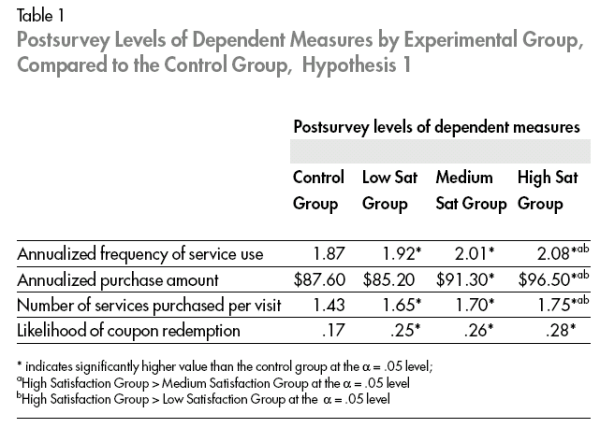The number and range of customer feedback surveys being undertaken by organizations wanting to understand how their customer’s feel about the organization and its product is now substantial.
However, believe it or not, customer satisfaction surveys have a little bit of quantum mechanics in them! Such surveys exhibit the Heisenberg uncertainty principle in that surveying a customer can in itself change the perception of that customer.
The effect of this principal can be seen in work by Dholakia and Morwitz. For their Harvard Business Review paper, aptly titled: “How Surveys Influence Customers”, they surveyed members of a financial service company’s customer relationship program and then tracked them over two years. Their results are quite amazing:
“A year after the survey was conducted, the customers we surveyed were more than three times as likely to have opened new accounts, were less than half as likely to have defected, and were more profitable than the customers who hadn’t been surveyed. These differences reached their maximum levels several months after the survey was done and persisted throughout the year”
A report in the Marketing Science Institute (“Firm-Sponsored Satisfaction Surveys: Positivity Effects on Customer purchase Behaviour”) reported similar results. Surveyed customers, regardless of their overall satisfaction, bought more and were more loyal (evidenced by their repurchase rate) than un-surveyed customers. See the chart below:
My reason for raising this phenomenon is definitely not to suggest that marketers go out and attempt to influence customers by surveying them. That approach is not only un-ethical but also illegal in some jurisdictions.
No, my reason for raising it is to reinforce that a customer survey is in fact another key customer contact and must be conducted in a way that reflects the way that you want your brand and company to be perceived.
As an example, we often perform customer service surveys for high value business to business organizations. Our conversations with these clients invariably start with them wanting to perform an internet based customer service survey to gain insights into customer satisfaction and loyalty.
I will often ask them what they do as the CEO/COO/CFO of a large organization when they receive an internet survey. “I delete it” is the common reply. I then ask them if an internet survey makes them feel that their opinion is valued?” “No”, is the common response.
It’s at this point that they understand that information transfer during the survey process not just from customer to company but also company to customer. Because it is two way and our clients often decide to stratify their survey methodology by customer value to provide an appropriate survey interaction for different customer types.
There are three main methods of survey execution that we use:
Face to face interviews
We often suggest of face to face interviews for high value customer contacts. This approach makes the customer feel the most valued and creates the best rapport with the interviewer. It also gathers the most qualitative information regarding the users’ perceptions and how to improve those perceptions.
Note that the person performing the survey must be properly trained to avoid interviewer bias. They must also dressed appropriately and be able to demonstrate a reasonable grasp of the interviewees high level business drivers for this approach to be effective.
Telephone interviews
In the same way that face to face interviews provide excellent feedback from key staff, mid-importance customer contacts can be interviewed by telephone. This approach offers a good mix of cost control (they are less expensive than face to face surveys) and are able to gather substantial qualitative information.
Internet Surveys
This approach is not without merit. It provides the ability to reach larger numbers of end users and provides solid quantitative outcomes for the scoring of various service elements but provides relatively less qualitative information.
So the next time that you are considering your customer survey methodology consider that how you perform a survey says as much about your organization as the products and services that it surveys.
Do you have a question about customer loyalty or satisfaction surveys? Ask it below and I’ll respond.





One other thing to consider is whether to complete the survey in-house (or using an agency under your brand) or outsource the process.
The advantage of completing a telephone survey in-house (especially a telephone survey) is very immediate feedback that you may be able to fix if it is a problem, or capitalise on if it is an opportunity.
However, by using an outsourced survey company, you may get more meaningful responses, as there is not the same surveyor bias, and respondents are less likely to ‘soften’ their answers.
Most outsourced telephone survey companies will, with the permission of the respondent, pass back any immediate problems or leads for action, although they will not generally be able to suggest an immediate resolution like and in-house customer care team could.
Jonathan
Synergy Connections: Telephone Surveys, Database cleaning, Telemarketing in the UK.